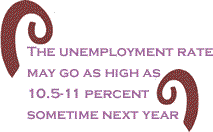
|
|||||||||||||||||||||||

|
|

Custom Search
|
|
 |
|
Now
they are out to nickel and dime us to death. Here in my home town
the traffic and parking department has been prevailed upon to “step
up” its enforcement activity - and maneuvering to have parking meters
work far into the night - in order help cover some of the city’s
budget deficit. The astonishing thing is that such measures, being undertaken across the country, are being approved and even plotted by some liberals and progressives. It’s high time we all recognize that the people who get hit by traffic fines are the ones without garages and “sin taxes,” by and large, target working people. They are not the ones who got the economy into the current mess but if some people have their way, they will pay through the nose for it. This, at a time when unemployment is soaring, working hours are being cut and paychecks are shrinking. Nor is there anything good to be said for pitting the budgets for police and fire services against health and welfare services. That’s not the way to nurture the progressive political majority needed to really address the current crisis. Yet, in the absence of measures to bring in new sources of revenue to run our cities and states, well-meaning people are maneuvered into challenging each other for pieces of the shrinking pie. All across the nation, schools are being shuttered, senior meal programs decimated, community health centers eliminated and legal aid for the poor hammered. We are being told there is no other way and that we should stoically accept this austerity and count what blessings we have left. The problem is that if the sacrifices being forced upon our families and communities are really necessary, then they are not being doled out with anything approaching equity. They’re still living it up big time in some parts of town.
Meanwhile, the country’s employment crisis continues to worsen. When wandering in the desert, beware shimmering water on the horizon,” read the Financial Times’ Lex Column, July 2. “If May’s better than expected jobs report offered the dehydrated US labor market hope of succor, June’s miserable effort was a mouthful of sand.” The June jobs data from the Labor Department contained “few signs of life at all,’ it said adding, “Slowing growth in weekly earnings, now at 2.7 per cent year on year, is another serving of angst. And falling hours plus sluggish wages mean a further drag on US consumption – already constrained by debt-laden household balance sheets and tight credit. The mirage, and with it hopes of a speedy recovery, has vanished.”
As economist Dean Baker notes in his Jobs Byte column, the percentage of the unemployed who have been out of work for more than 26 weeks increased by 2 percentage points to 29.0 percent in June and “Many of these workers will soon be exhausting even their extended unemployment benefits.” When drawing up the economic stimulus plan, the Obama Administration relied on a projection of an 8 percent jobless rate this year. It became clear a couple of months ago that figure would miss the mark. It now stands at 9.4 percent and the consensus is that it will reach 10 percent by Christmas. Pimco CEO and chief investment officer, Mohamed El-Erian, now suggests that it may go as high as 10.5-11 percent sometime next year. “Economists are currently spreading the word that the recession may end sometime this year, but the unemployment rate will continue to climb,” Bob Herbert wrote in the New York Times last week “That’s not a recovery. That’s mumbo jumbo.” “There are now more than five unemployed workers for every job opening in the United States,” wrote Herbert. “The ranks of the poor are growing, welfare rolls are rising and young American men on a broad front are falling into an abyss of joblessness. The “broad front” to which Herbert refers may relate to what I consider some of the worst mumbo jumbo floating around out there: the idea that education guarantees a good job or any job at all. One of the striking aspects of the job stats so far this year is the number of out-of-work college graduates. It keeps on growing. The percentage of unemployed people with some college or an Associate degree was 4.4 percent last June, 7.7 this May and now stands at 8.0 percent. For those under 27 years old with a Bachelors degree or better, it’s 5.9 percent. “Everyone is worse off in the current downturn, and young college grads are no exception,” writes Kathryn Edwards of the Economic Policy Institute. adding, “Although still better off than their peers without a higher education, young college graduates face challenges unique to their age and situation - it is likely that they have considerable debt from financing school, have had no time to build up savings, and, if looking for their first job, are not eligible for unemployment benefits.”
“The problem is most acute in the 25-and-under age group among Asian female graduates and black and Hispanic male graduates,” wrote Pugh. “The survey, of 60,000 households, found less than 30 percent of Asian female grads, 32 percent of Hispanic male grads and just over 35 percent of young black male grads working in jobs that require a bachelor’s degree.” Of course, a young graduate working at a low-paying job means one less job opening for a kid with no degree. The figures for unemployment among college graduates are, of course, relatively low percentages; the greatest burden of joblessness is falling on those without a high school diploma (15.5 percent) and high school graduates (9.8 percent) – especially young African Americans (37.9 percent – seasonally adjusted) and Latinos (31 percent in May). The figure for 20-24 year old Latinos was 16.5% in May. “Why this rampant joblessness is not viewed as a crisis and approached with the sense of urgency and commitment that a crisis warrants, is beyond me,’ wrote Herbert, one of the very few mainstream commentators to consistently deal with this crisis in minority communities. “The Obama administration has committed a great deal of money to keep the economy from collapsing entirely, but that is not enough to cope with the scope of the jobless crisis.”
“Obama administration economists understand the stakes,” wrote Krugman. “Indeed, just a few weeks ago, Christina Romer, the chairwoman of the Council of Economic Advisers, published an article on the “lessons of 1937” - the year that F.D.R. gave in to the deficit and inflation hawks, with disastrous consequences both for the economy and for his political agenda. “What I don’t know is whether the administration has faced up to the inadequacy of what it has done so far.” “So here’s my message to the president: You need to get both your economic team and your political people working on additional stimulus, now. Because if you don’t, you’ll soon be facing your own personal 1937.” As
he prepared to depart on a foreign trip last week, the President
issued a Fourth of July Message to the country that contained the
words: “as long as some Americans still must struggle, none of us
can be fully content.” Petty and punitive taxes falling on working people is not the answer. Nor is robbing Peter to pay Paul. What’s needed to get us out of this mess is a unified message to the people who run our cities, states and those in Washington charged with protecting the general welfare, that we need a new deal. BlackCommentator.com Editorial Board member Carl Bloice is a writer in San Francisco, a member of the National Coordinating Committee of the Committees of Correspondence for Democracy and Socialism and formerly worked for a healthcare union. Click here to contact Mr. Bloice. |
|
Any BlackCommentator.com article may be re-printed so long as it is re-printed in its entirety and full credit given to the author and www.BlackCommentator.com. If the re-print is on the Internet we additionally request a link back to the original piece on our Website. Your comments are always welcome. eMail re-print notice
If you send us an eMail message we may publish all or part of it, unless you tell us it is not for publication. You may also request that we withhold your name. Thank you very much for your readership. |
|
| |
|
| July
9, 2009 Issue 332 |
|
| Executive Editor: Bill Fletcher, Jr. |
| Managing Editor: Nancy Littlefield |
| Publisher: Peter Gamble |
| Est. April 5, 2002 |
Printer Friendly Version
in resizeable plain
text format or pdf
format. |
| Frequently Asked Questions |
 |

|
 |
 |
 |
| |
| |




























 “The
mood among financiers is suddenly more cheery,” wrote John Plender
in the Financial Times the other day. In London and New York
“trading profits are up and bonuses are back” And, rather than being
reduced to something more reasonable, executive compensation packages
are on the way up. “There is also a growing suspicion on both sides
of the Atlantic that bankers, a lethal breed whose activities have
pretty much throttled the global economy while causing government
deficits to balloon, are going back to business as usual – a frightening
prospect for taxpayers everywhere,” he wrote.
“The
mood among financiers is suddenly more cheery,” wrote John Plender
in the Financial Times the other day. In London and New York
“trading profits are up and bonuses are back” And, rather than being
reduced to something more reasonable, executive compensation packages
are on the way up. “There is also a growing suspicion on both sides
of the Atlantic that bankers, a lethal breed whose activities have
pretty much throttled the global economy while causing government
deficits to balloon, are going back to business as usual – a frightening
prospect for taxpayers everywhere,” he wrote. “The
entire growth in jobs over the last nine years has now been
wiped out – the economy currently has fewer jobs than it had in
May 2000,” says Economic Policy Institute economist Heidi Shierholz.
“The labor force, however, has grown by 12.5 million workers since
then. “This is the only recession since the Great Depression to
wipe out all jobs growth from the previous business cycle, a devastating
benchmark for the workers of this country and a testament to both
the enormity of the current crisis and to the extreme weakness of
jobs growth from 2000-2007.”
“The
entire growth in jobs over the last nine years has now been
wiped out – the economy currently has fewer jobs than it had in
May 2000,” says Economic Policy Institute economist Heidi Shierholz.
“The labor force, however, has grown by 12.5 million workers since
then. “This is the only recession since the Great Depression to
wipe out all jobs growth from the previous business cycle, a devastating
benchmark for the workers of this country and a testament to both
the enormity of the current crisis and to the extreme weakness of
jobs growth from 2000-2007.”
 “The
tough economy and tight labor market have tarnished the luster of
a bachelor’s degree for young college graduates seeking employment,
wrote Tony Pugh for the McClatrchy newspapers. “New monthly
survey data from the Center for Labor Market Studies at Northeastern
University in Boston finds that during the first four months of
2009, less than half of the nation’s 4 million college graduates
age 25 and under were working in jobs that required a college degree.
That’s down from 54 percent for the same period last year.”
“The
tough economy and tight labor market have tarnished the luster of
a bachelor’s degree for young college graduates seeking employment,
wrote Tony Pugh for the McClatrchy newspapers. “New monthly
survey data from the Center for Labor Market Studies at Northeastern
University in Boston finds that during the first four months of
2009, less than half of the nation’s 4 million college graduates
age 25 and under were working in jobs that required a college degree.
That’s down from 54 percent for the same period last year.” In
a clear and hard hitting piece July 2, Nobel Prize winning economist
and New York Times Columnist, Paul Krugman, laid out the
challenge the worsening jobs picture places before the Obama Administration
and the nation. He wrote that “as in the 1930s, the opponents of
action are peddling scare stories about inflation even as deflation
looms” and “So getting another round of stimulus will be difficult.
But it’s essential.”
In
a clear and hard hitting piece July 2, Nobel Prize winning economist
and New York Times Columnist, Paul Krugman, laid out the
challenge the worsening jobs picture places before the Obama Administration
and the nation. He wrote that “as in the 1930s, the opponents of
action are peddling scare stories about inflation even as deflation
looms” and “So getting another round of stimulus will be difficult.
But it’s essential.”





